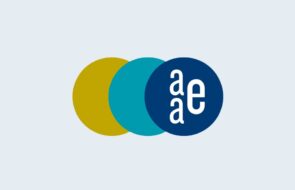Communiqué
The Communiqué is distributed monthly via email to AAE members and supporters.
Its mission is to promote communication among AAE members, leaders of the AAE, ABE and AAE Foundation, and AAE affiliate organizations; encourage coordinated activities; inform the membership of developments in the endodontic specialty and dental profession; and raise awareness of AAE events, products and services.
The views and opinions expressed by authors are solely those of the authors and do not necessarily reflect the official policy or position of the American Association of Endodontists (AAE). Publication of these views does not imply endorsement by the AAE.
We want to hear from you! Submit questions, story ideas or letters to the editor to communications@aae.org.
For advertising policy questions, please refer to the AAE's Advertising Guidelines and Acceptance Policy page.
Latest Communiqué News
You will have to manage your risk throughout your endodontic career, regardless of how your professional and personal life unfolds. In this article, we will take a brief ‘risk management’ journey from practice through retirement.
Read MoreAs endodontists and professional staff, we have come to know and value the AAE’s annual meeting. Its top-quality educational sessions allow us to connect with friends and colleagues in attractive locations which draw many of us year after year.
Read MoreThe AAE is encouraging members to participate in a study being conducted by the National Dental Practice Based Research Network on Predicting Outcomes of Root Canal Treatment, observational cohort study.
Read MoreAs predicted our website numbers rebounded in October after a slow September. We are seeing increases in all of the key metrics which is great sign going into the holiday season.
Read MoreNominations for a new slate of leadership were proposed at the 2017 AAE Nominating Committee meeting. The committee members met to recommend new leaders for the AAE, AAE Foundation and American Board of Endodontics.
Read MoreBoard certification is not only a personal accomplishment, but a way of showing respect and gratitude to your profession, endodontic training program and the faculty members who mentored you along the way Read three different perspectives on becoming a Diplomate.
Read More

